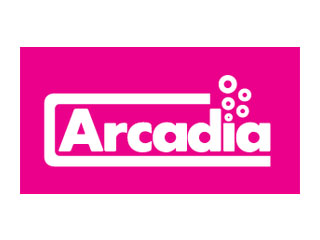Common Green Iguana; Detailed Captive Care Sheet
A well explained Care Sheet, all the information you need to know about keeping Common Green Iguanas.
By David R from East Yorkshire on Monday 18th February 2008

Captive Care of the Green Iguana
Common Name: Common Green Iguana
Slang Names: Iggies
Scientific Name: Iguana Iguana
Origin: South America
Adult Size: 4-6foot
Difficulty of Care: [5/5] Not recommended for beginners (Try bearded dragons, Geckos, or Chinese Water Dragons)
BEHAVIOR: Green Iguanas are very Intelligent reptiles. Iguanas can also react to different colors; for example, bright colors scare the Iguana. When handling Iguanas it is advised to wear earthy colors, such as browns, dark greens, blacks etc. They require a lot of handling, perseverance, and tender loving care. You will not have this animal tame in a couple of months, even from a hatchling. To get an Iguana dog tame it will take at least a year, at a minimum. Expect your Iguana to whip you when you first get it, and maybe even attempt to bite you. This will not hurt, and do not be alarmed when it whips you, it is nothing personal; persevere with it to build trust. Also, Males do become territorial, and should be kept separate from other males. If they are together, and argue, then they will nearly always fight to the death, or at least one will be seriously injured, if not both.
NATURAL HABITAT: The Green Iguana is a arboreal lizard which live in the tropical rain forests of South America.
CAPTIVE ENVIRONMENT: In captivity adult Iguana's require a vivarium of at least 6' x 5' x 4', If more space is available, please give it. Most people usually donate a room of the house to a fully grown adult Iguana. Use full spectrum 5% UVB lighting 12-14 hours per day. Provide a basking area with access to a cooler area. All reptiles like a thermal gradient in their tank. An Ideal set up would be a UVB bayonet bulb at one end of the tank for basking, with a heat mat under the same side. Supply hides, branches, reptile plants/leaves, and substrate such as Orchid Bark is very good. Although personal preference does count, try to stick to wooden hides and leaves etc. as do remember, these animals live in trees, so sand for substrate and caves for hides do not match its original environment.
TEMPERATURE: During the day, the warm end of the tank (basking area) should be around 90ºF (32ºC), with a gradient to the cooler end of the tank of about 80ºF (26ºC). Night time temperatures should range between 70-80ºF. To keep a ground heat use a reptile heat mat. Use a thermometer to gauge the temperature.
HUMIDITY / WATER REQUIREMENTS: Iguanas require moderate to high levels of humidity. Mist the vivarium every other day. Also supply a large, fairly deep water dish for drinking an bathing. Place the water dish over the half of the basking area so the heat will create a water vapour making more humidity. This will need cleaning out thoroughly everyday as water makes stimulates the bowls of all reptiles, also, every time you are near your tank check the water levels, making sure it hasn't all evaporated. Also, only use Luke warm water. freezing cold water can send them into a state of shock, and sometimes even kill them.
NUTRITIONAL REQUIREMENTS: Green Iguanas are herbivores** They like dark green mustards, turnip, dandelions (make sure any leaves and flowers are untreated, and are safe for your Iguana). Feed beets, cabbage, spinach (broccoli and kale small amounts only). Supplement leafy diet with green beans, squash, sprouts and runner beans. 10-15% of diet may include fruits (papayas, orange, mangos, apples, figs, etc.) You may never really see your Iguana eating.. but do not be alarmed, If it is alive, then it is eating. When misting your vivarium, mist the food as well, this will help prolong its life, however, do change the food every two days.
*Dog tame; a phrase commonly referred to as an animal being very very tame and friendly, like a dog.
**Herbivore; Animal does not eat meat.














